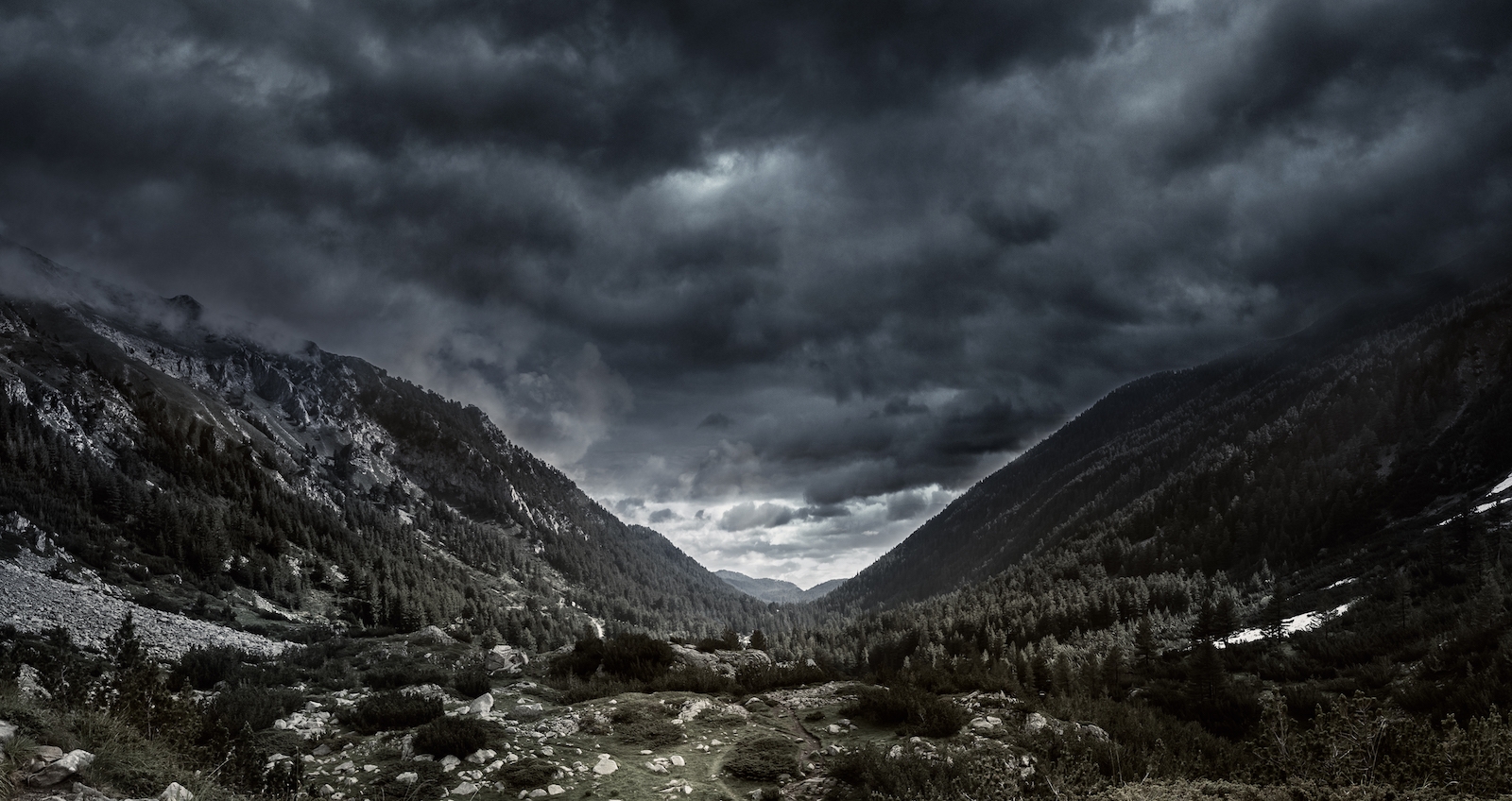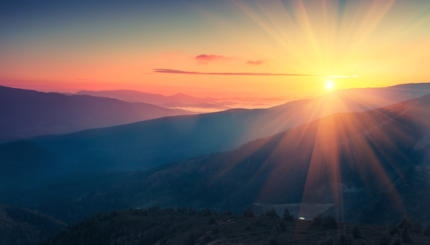Among the best-known of any biblical chapter, the six verses of Psalm 23 are commonly recited at funerals and chanted as a meditation. Its mystical words echo in our ears:
Yea though I walk through the valley of the shadow of death, I will fear no evil, for You are with me.
But what do they mean?
The classic King James translation of 1611, quoted above, capitalizes the “Y” in You, meaning that the one doing the walking is human and God is the companion. Robert Alter’s magisterial 2007 translation agrees. Human beings do not walk alone through life’s travails — through the “vale of death’s shadow” as Alter renders it — because God is always present.
Yet other interpreters suggest that the verse might not be pointing to the Divine Presence at all. Consider this teaching from the Talmud:

Help us keep Jewish knowledge accessible to millions of people around the world.
Your donation to My Jewish Learning fuels endless journeys of Jewish discovery. With your help, My Jewish Learning can continue to provide nonstop opportunities for learning, connection and growth.
Rav Yitzḥak said: What is the meaning of “Yea though I walk through the valley of the shadow of death, I will fear no evil, for You are with me”? This is a person who sleeps in the shadow of a single palm tree, and in the shadow of the moon. But with regard to one who sleeps in the shadow of a single palm tree, we said he is in danger only if the shadow of another palm tree does not fall upon him. However, if the shadow of another palm tree falls upon him, we have no problem with it. (Pesachim 111a)
For Rav Yitzhak, sitting in the shade of a solitary tree can be dangerous, but sitting in the shared shadows of two trees is not. How might we understand this imaginative reinterpretation? Perhaps companionship itself reduces the fear of the dark. In this radical approach, it is not a miraculous appearance of heavenly light that the psalmist imagines, but rather the empathetic connection of kindred darknesses.
Two ancient rabbinic voices go even further in their understanding of who journeys together in the dark:
Rabbi Eleazar of Moda said, “In the future, in the world to come, the angels of the nations of the world bring charges against Israel before the Holy Blessed One, saying: ‘Master of the universe! These have served idolatry and these have served idolatry; these have committed sexual sins and these have committed sexual sins; these have spilled blood and these have spilled blood! Why then are You bringing these down to Gehinnom and these are not being brought down?’ The Holy Blessed One will turn to them and reply, ‘If this is so, then all the peoples with their gods will go down to Gehinnom,’ as it is written: ‘all the peoples walk each in the names of its gods (Micah 4:5).’”
In Rabbi Eleazar of Moda’s telling, God is challenged by the angels who want to know why different peoples of the world are punished differently for committing the same sins. And God replies that the angels are right, essentially telling them: “All of the peoples should go to Gehinnom — and their gods as well, including me.”
The passage continues:
Rabbi Reuben said, “If it weren’t written in the Tanach (Hebrew Bible), how could this ever be spoken: ‘For with fire will God be judged (Isaiah 66:16).’ ‘God judges’ is not written but rather ‘will be judged!’ It is he whom David said through the Holy Spirit: ‘Yea though I walk through the valley of the shadow of death, I will fear no evil, for You are with me. (Psalm 23:4).’” (Shir HaShirim Rabbah on SoS 2:1)
According to Rabbi Reuben, this idea of God being judged and punished along with the people would be unbelievable were it not written in the Bible. But there it is, in Isaiah and Psalm 23. In this rendering, it is God who walks through the valley and is not afraid because we are with God. No people walks without God, and no God worth loving walks without the people. Even God trembles when we suffer.
This revolutionary rereading of the verse brings God into the shadowy journey all human beings endure in this world. Even God experiences the hellish dark by virtue of being connected to those who suffer its pain — which is to say, everyone. In those places where people face darkness, God goes as well, linked in sacred relationship to the vulnerability and fear human life often includes.
The 19th-century Hasidic master Rabbi Mordecai Yosef Leiner, also known as the Ishbitzer, expresses this plainly:
“Yea though I walk through the valley of the shadow of death, I will fear no evil, for You are with me” means that one who falls truly falls into their portion of the Holy One.” (Pri Tzedek, Naso 15)
What the Ishbitzer is saying is that even if you can’t remember to let your darkness touch someone else’s darkness, know that when you fall you’re falling into God. And maybe God falls into you too. Maybe when we fall into each other, we won’t fall apart. We’ll fall together.
We can be comforted by others when we feel scared. We can be comforted by remembering that God has chosen to walk with us in the valleys of life. And we can be comforted by the knowledge that when we fall, we fall into God’s waiting Presence.
These comforts do not promise a painless tomorrow. Deep faith does not ignore reality. The gift of Psalm 23 is that rather than deny this reality, it reminds us that the best way to prepare for the inevitability of life’s challenges is ready and waiting: strengthening our relationships with others, and walking hand-in-hand with the Divine.




